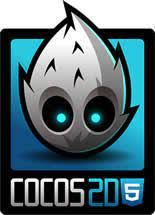Dive into the world of Javascript game engines with us. We guide you through the top selections to power up your gaming development journey.
More...
We want to take you on a journey exploring the world of JavaScript game engines. Our goal is to offer you a comprehensive guide to the top selections available in the market, empowering you to enhance your gaming development journey.
Game engines are software frameworks that provide developers with the necessary tools and resources to create, develop, and deploy games using the JavaScript programming language. As more developers turn to JavaScript for game development, it's essential to explore the top selections available to ensure that your gaming project can thrive.
Join us as we explore the possibilities of JS game engines, highlighting the advantages of using these tools, the best practices to follow, and the most important considerations when choosing a JavaScript game engine. Our focus is to provide you with the latest information on top game engines and help you make informed decisions about the tools you use for your gaming projects.
What Are Javascript Game Engines?
Javascript game engine is a software framework that allows developers to create and deploy games using the Javascript programming language.
It provides a range of necessary tools and resources like graphics rendering, physics engine, audio management, asset management, input management, etc. to game developers to create high-quality games. The game engine handles the underlying functionality and mechanics of the game, allowing developers to focus on the creative aspects of game development.
Top Javascript Game Engine #1: Phaser
When it comes to Javascript game engines, Phaser is among the top selections available. It provides an extensive set of features, making it a popular choice among both beginners and experienced developers. With its active community and comprehensive documentation, Phaser is an excellent option for game development.
Phaser comes equipped with a variety of tools, including physics, audio, and input management. It also provides an easy-to-use API, allowing developers to code games quickly and efficiently. Additionally, Phaser's cross-platform compatibility ensures that games made using the engine can run smoothly on both desktop and mobile platforms.

One of the key strengths of Phaser is its ability to handle 2D game development with ease. It offers several options for sprite handling, including tilemaps and bitmap fonts. Phaser also has robust support for animations, allowing developers to create engaging and dynamic game elements. Its flexibility and functionality make it a reliable choice for creating high-quality games.
Pros | Cons |
|---|---|
Easy-to-use API | Not suitable for 3D game development |
Comprehensive documentation | Can have performance issues with large or complex games |
Active community support |
Phaser is a fantastic choice for developers looking to create engaging 2D games with Javascript. Its simplicity, functionality, and extensive support make it a top Javascript game engine.
Top Javascript Game Engine #2: Babylon.js
Babylon.js has gained popularity due to its powerful 3D game development capabilities, utilizing WebGL and WebVR technologies. Let's take a closer look at its features.
Babylon.js provides a wide range of tools for developers to create immersive 3D games. It offers extensive support for game physics, collision detection, and even includes built-in support for virtual reality headsets.

One of the strengths of Babylon.js is its flexibility. It allows developers to create complex 3D scenes and animations with ease, thanks to its simple and straightforward API. Advanced features such as particle systems and shadow maps are readily available and quickly implemented.
It provides excellent performance, even on lower-end devices. It optimizes asset loading to reduce load times and offers support for procedural texture generation, further reducing the size of assets that need to be loaded. Moreover, it allows for seamless integration with other libraries and tools, such as Blender and TypeScript.
Babylon.js is an excellent choice for developers looking to create visually stunning 3D games. Its powerful features, flexibility, and performance make it one of the top Javascript game engines available.
Top Javascript Game Engine #3: Cocos2d-JS
Cocos2d-JS is a highly versatile cross-platform game engine with support for both 2D and 3D game development. Its wide range of features includes an integrated physics engine, animation system, and visual editor. The engine's ease of use and extensive documentation make it a popular choice among developers.
Cocos2d-JS provides an efficient workflow that empowers developers to create games quickly and efficiently. With its component-based architecture, developers can easily manage game objects and reduce code redundancy. The engine's powerful scripting language, JavaScript, enables developers to create complex logic and game mechanics with ease.

One of the unique features of Cocos2d-JS is its cross-platform support. The engine supports a variety of platforms, including HTML5, iOS, and Android. This enables developers to create games that can be deployed across multiple devices and platforms with minimal effort.
Cocos2d-JS also provides an active and supportive community that contributes to the engine's development continuously. The community has created numerous plugins and tools that add additional functionality to the engine, such as third-party physics engines and UI frameworks.
Overall, Cocos2d-JS is a top javascript game engine that is suitable for both novice and experienced developers. Its versatility, ease of use, and cross-platform support make it a highly recommended choice for game development.
Advantages of Using Javascript Game Engines
When it comes to game development, using a Javascript game engine can offer several advantages that make the process quicker and more efficient. Below are some of the key advantages of using Javascript game engines:

1. Coding Simplified
One of the most significant advantages of Javascript game engines is that they simplify the coding process. These engines provide a set of libraries and tools that streamline coding and enable you to create complex games with minimal effort. Moreover, the engines handle the low-level tasks such as graphics rendering, collision detection, and input handling, allowing you to focus on the more significant features of your game.

2. Cross-Platform Compatibility
Another advantage of using JS game engines is their cross-platform compatibility. With the rise of mobile gaming, it's essential to develop games that work on multiple platforms, such as desktops, smartphones, and tablets. Game engines such as Phaser, Babylon.js, and Cocos2d-JS can run on multiple platforms, including Android, iOS, Mac, and Windows, making it easier to reach a broader audience.

3. Built-In Features and Libraries
Javascript game engines come with a vast range of built-in features, including physics engines, animation systems, and visual editors that enable game developers to create immersive gameplay and visual effects. These features and libraries help speed up the game development process by providing pre-built solutions that developers can easily integrate into their games. This is particularly useful for new developers who may not be familiar with the underlying technologies.
Therefore, by using a Javascript game engine, you can reduce the development time and focus on creating quality games that provide a great user experience. The next section will cover the top Javascript game engines available today.
Considerations for Choosing a Javascript Game Engine
When choosing a Javascript game engine, several factors need consideration to ensure successful game development. Here, we discuss the crucial considerations for selecting a Javascript game engine.

1. Project Requirements
A vital consideration when choosing a Javascript game engine is your project's requirements. Consider the type of game you intend to develop, the visual style, and the complexity of the game mechanics. Choose an engine that aligns with your project goals and requirements.
2. Learning Curve
Consider the learning curve required to master the engine. Some engines have a steeper learning curve than others, and this might affect your development timeline. Choose an engine that has extensive documentation and community support to help you overcome any obstacles.
3. Community Support
Community support is crucial when using a Javascript game engine. The engine's community can provide solutions to arising problems, share knowledge and resources and collaborate on future development. Choose an engine with an active and supportive community.
4. Performance
The engine's performance is a critical consideration when selecting a Javascript game engine. Choose an engine that has optimal performance, provides smooth gameplay, and can handle the game's complexity.
Best Practices for Javascript Game Engine Development
Developing games with Javascript game engines can be a rewarding experience, but it's essential to follow best practices to achieve optimal performance and create high-quality games. Here are some best practices for Javascript game engine development:
- 1Optimize asset loading: Load only the necessary assets for each game level and use a preloader to avoid long loading times. Compress images and audio files to reduce file size and boost game performance.
- 2Manage game states efficiently: Keep game states independent and separate, making it easier to switch between game levels and implement new features. Use state machines to handle game states and avoid global variables that can cause performance issues.
- 3Implement proper collision detection algorithms: Choose the most suitable collision detection algorithm based on the game's physics system. Opt for lightweight algorithms for 2D games and more complex ones for 3D games. Avoid using expensive algorithms that can impact game performance.
- 4Optimize game performance: Use requestAnimationFrame to reduce CPU usage and improve game performance. Avoid using setInterval or setTimeout for game loops, as they can slow down the game. Use profiler tools to identify performance issues and optimize game code accordingly.
- 5Test and debug thoroughly: Test games on different devices and browsers to ensure cross-platform compatibility. Use debugging tools to identify and fix bugs and errors quickly. Write clean and well-organized code to make debugging easier and more efficient.
By following these best practices, you can create high-quality games with optimal performance using Javascript game engines. Remember to consider your project requirements, learning curve, community support, and performance when selecting a game engine and always strive to improve your skills and knowledge to create even better games.
Final Thoughts
In conclusion, as we explored in this article, Javascript game engines are powerful tools that enable game developers to create captivating games using the Javascript programming language.
By understanding what game engines are and considering the advantages they offer, we can make informed decisions when selecting the best engine for our projects. Whether we choose Phaser, Babylon.js, Cocos2d-JS, or another option, it's essential to follow best practices to achieve optimal performance and high-quality game development.
As with any development project, it's crucial to keep in mind our project requirements, the learning curve, community support, and performance when making decisions.
With the right Javascript game engine and best practices, we can create exciting and visually stunning games that captivate and engage players. We hope this article has empowered you to enhance your gaming development journey by exploring the top Javascript game engines available.
FAQ
What are JavaScript game engines?
JavaScript game engines are software frameworks that provide developers with the necessary tools and resources to create, develop, and deploy games using the JavaScript programming language.
What are the advantages of using JavaScript game engines?
There are several advantages to using JavaScript game engines. They offer simplified coding structures, cross-platform compatibility, and a wide range of built-in features and libraries. These advantages can significantly speed up the development process and enhance the overall gaming experience.
What is Phaser?
Phaser is one of the most popular JavaScript game engines available. It provides a comprehensive set of features, including physics, audio, and input management. With its active community and extensive documentation, Phaser is an excellent choice for both beginners and experienced developers.
What is Babylon.js?
Babylon.js is a powerful 3D game engine that utilizes WebGL and WebVR technologies. It offers a wide range of features and tools for creating immersive 3D games. The engine's flexibility and performance make it a top choice for developers looking to create visually stunning games.
What is Cocos2d-JS?
Cocos2d-JS is a versatile game engine that supports both 2D and 3D game development. It provides a rich set of tools, including an integrated physics engine, animation system, and a visual editor. Cocos2d-JS is a popular choice among developers due to its ease of use and extensive documentation.
What should I consider when choosing a JavaScript game engine?
When selecting a JavaScript game engine, it's essential to consider factors such as your project requirements, learning curve, community support, and performance. By evaluating these considerations, you can make an informed decision that aligns with your development goals.
What are some best practices for JavaScript game engine development?
To make the most out of your JavaScript game engine, it's crucial to follow best practices. These include optimizing asset loading, managing game states efficiently, and implementing proper collision detection algorithms. By adhering to these practices, you can create high-quality games with optimal performance.
What is the conclusion regarding JavaScript game engines?
In conclusion, JavaScript game engines offer game developers a powerful set of tools to create captivating games. Whether you choose Phaser, Babylon.js, or Cocos2d-JS, each engine has its strengths and suitability for different types of games. Consider your project requirements and follow best practices to achieve successful game development with JavaScript.
